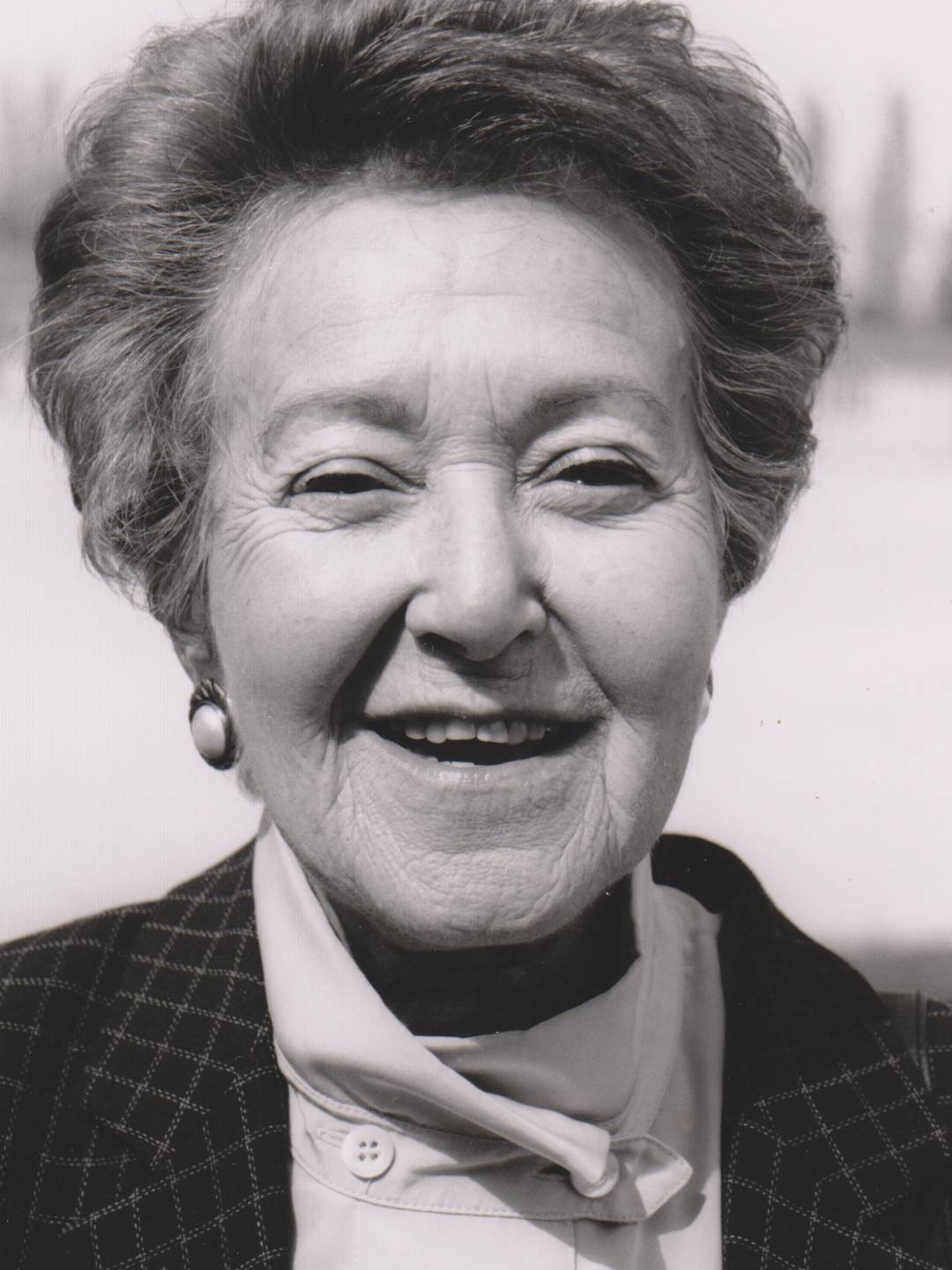Channa Birnfeld
(born on 6 June 1926 in Jerusalem, died on 3 September 2014 in Hamburg) Prisoner number: 86578
I assume it was once a (field worker 00:18:48-2) barracks. Completely empty, no pallets, nothing at all. We were forced to go in, door closed and finish. And the next morning, there was no “go”, no “line up”; we peeked out, no guards there. We were scared. We were not happy. And we didn’t know whether the worst was yet to come. Whether they would burn down the barracks, and shoot at us inside. And we squatted inside this barracks and shivered from cold and fear. And then, in the afternoon, came a noise and we looked out to find the first American tank.
– Channa Birnfeld about the liberation by American soldiers on a death march
Channa Birnfeld (maiden name Strohli) was born in 1926 as the fourth child of her parents in Jerusalem. In 1927, the family returned to their former home town, the Romanian Cluj-Napoca (Klausenburg in German) in Transylvania. Owing to the Vienna Arbitration in 1940, the northern part of the region was annexed by Hungary. When the German troops invaded Hungary in 1944, a ghetto was built in Cluj-Napoca. All Jews were summoned to move there.
As early as two months later, Birnfeld was deported to Auschwitz together with her parents and her sister Olga. Her parents were murdered shortly thereafter. Birnfeld, her sister, and aunt were deported to Kaufering IV concentration subcamp in early August 1944.
Channa Birnfeld’s red hair caught the attention of an SS member, who employed her to write transport lists. When a number of women were to be transported from Landsberg/Kaufering concentration subcamp complex to Bergen-Belsen concentration camp at the end of the year, Birnfeld successfully exchanged her aunt, who was to be deported, with a woman who wanted to accompany her relative to the concentration camp.
In March 1945, Birnfeld was transferred to Kaufering III camp, where one month later she was sent on a death march. She reached Buchberg on April 30, 1945. It was there where she, her sister and her aunt were liberated. She remained in Germany until her death.


